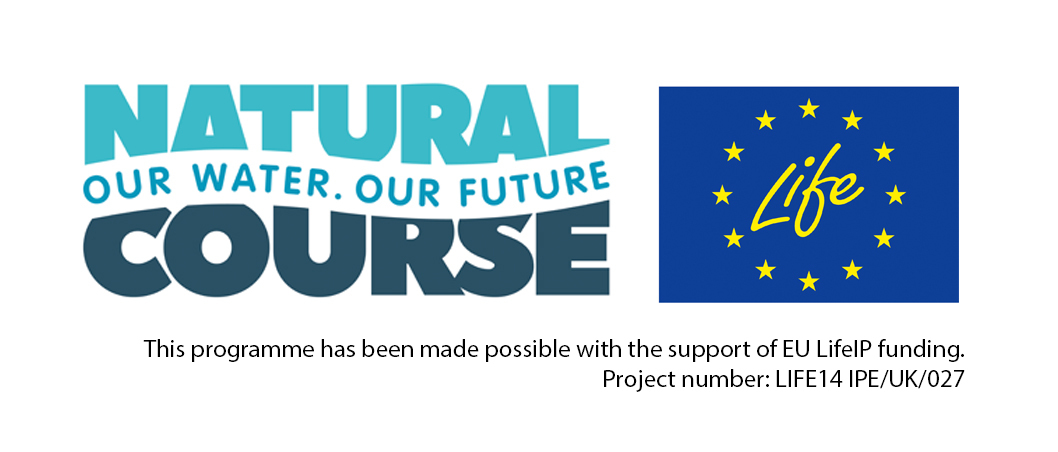Drain Misconnections Threaten Our Rivers
18/07/19
In the UK, it is estimated that there are between 150,000 and 500,000 houses with drain misconnections. This is where plumbing within the home is released into the wrong sewer. This is often caused by faulty plumbing, and more common in older properties.
What is a drain misconnection?
There are usually two sewers within a property - a waste water sewer and a surface water sewer.
- A waste water sewer is where drainage from appliances, toilets, sinks and showers go to be treated at a wastewater treatment works before being released into the environment.
- A surface water sewer is where rain water and roof and ground runoffs will enter to be directly released into rivers or streams.
Sometimes the two become misconnected, meaning waste water is released directly into rivers and streams, posing a serious threat to the environment.

How do drain misconnections affect our rivers?
It is estimated that 15 per cent of rivers in England and Wales have failed water quality standards as a result of misconnections.
Drain misconnections create a risk to both the environment and public health; for example rivers can become contaminated by sewage and dangerous chemicals used in household products like bleach and shampoo. These chemicals pose a huge threat to the river's ecosystem, as they are often ingested by animals or cause harm to plant life.
A drain misconnection also means that items flushed down toilets like tampons, wet wipes and more are released directly into rivers and the environment before being filtered. Research by British wastewater company, UKDN, revealed that 14.1% of people flush wet wipes, 8.6% of people flush sanitary towels, 10.6% tampons, applicators and wrappers, 8.2% dental floss and 4.7% flush condoms. Many of these items can cause large blockages for homeowners, but for those who have a drain misconnection, these items will end up in rivers and streams.
How to look after our rivers
The first step to looking after our rivers from the comfort of your home is to check whether your home may have a drain misconnection. Look out for any dodgy plumbing work or if any of your interior plumbing connects to the same hole as your drain pipe. If you’re unsure or you think you may have a misconnection, it’s important to call a plumber and resolve the issue as soon as possible.
Secondly, it’s important to only flush the 3 Ps – pee, poo and paper. Any other items should be safely discarded in the bin. This is to avoid small items, like cotton buds, ending up in rivers and oceans by bypassing filtering systems or as a result of a drain misconnection.
Dropping any litter while out of the house should also be avoided. Litter dropped on land will often end up in our rivers, eventually drifting out to sea, harming marine life. A report conducted by the HelmhotzCentre for Environmental Research, found that 90 per cent of plastic in our oceans comes from rivers, highlighting the importance of keeping our rivers clean as they can eventually lead to the ocean.
If you want to find out more about drain misconnections, sewerage regulations and how to identify them, see the recent whitepaper by drainage and wastewater management company – UKDN.
How Rivers Trusts are Helping
Misconnected pipes are a major threat to our rivers, which is why we're working so hard to identify and fix them.
'Outfall safaris', a concept first developed by the Zoologial Society of London (ZSL) in partnership with Thames Water and the Environment Agency, allow the public to play an active role in their river's health. Volunteers help to locate, assess and report polluting pipes, enabling the threat to be addressed.
ZSL and The Rivers Trust have released a helpful set of tools to help other environmental NGOs and water companies carry out the same work.
Michelle Walker, Head of Data and GIS at The Rivers Trust, said: “public knowledge about the impact of misconnected pipes is really limited, yet it is one of the major threats to the health of the river. Citizen science is a real game-changer for our rivers, not only does it educate the local community on the issues affecting our rivers, but it is also a really fun way to get people out enjoying and caring for their local river environment.”
“We ran an outfall safari with Trent Rivers Trust and Severn Trent Water last year and surveyed 101 outfalls, of which 27 outfalls were recorded as having a detrimental impact to the river. These outfalls are now being addressed by Severn Trent Water, which will make a huge difference to the health of the river – benefitting both the wildlife depending on the river and also the local community”
The full resource pack includes a mobile app, training and handout templates so other organisations can easily get their volunteers recording survey data, a reporting template with example maps and tables, case studies of previous projects and links to ArcGIS Online datasets and mapping resources.
Please visit the Catchment Based Approach website to view the resource.
